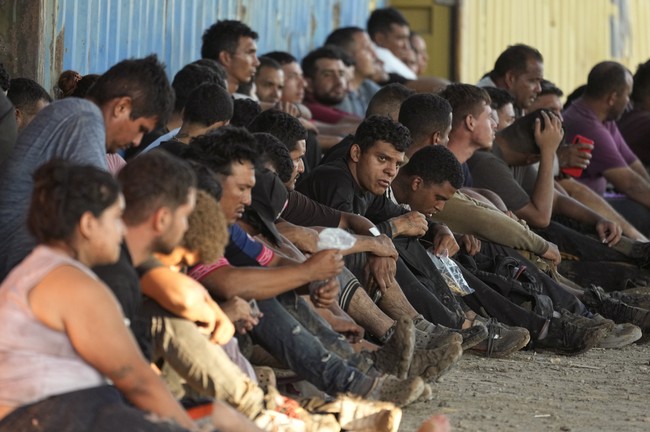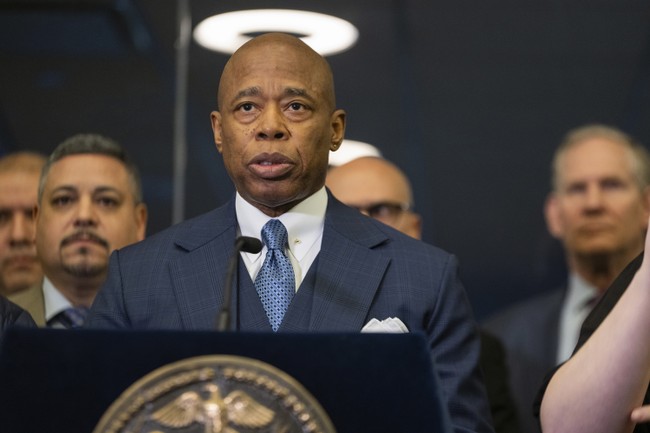Middle East Conflict: Trump and Netanyahu's Controversial Plans
Discover how recent provocative statements and proposals by global leaders heighten tensions in the Middle East, sparking international backlash and reigniting longstanding regional conflicts.
Published February 11, 2025 - 00:02am

Image recovered from novojornal.co.ao
The recent political maneuvers in the Middle East involving United States President Donald Trump and Israeli Prime Minister Benjamin Netanyahu have intensified global scrutiny. Trump's proposal, aimed at relocating Palestinians from Gaza to neighboring countries, has been met with widespread repudiation. Meanwhile, his notion of transforming Gaza into a 'Middle Eastern Riviera' attracted little support, save for Netanyahu.
Trump's outline provokes alarm across the Middle East. In a joint appearance with Netanyahu, Trump unveiled his extravagant vision to radically reshape Gaza post extensive bombings, evoking vehement opposition from global leaders. From the Arab neighbors such as Egypt and Jordan to a host of nations including Saudi Arabia, the United Arab Emirates, Iran, Turkey, and even allies such as the European Union, there is a unanimous outcry. The UN's Secretary-General, António Guterres, urged collective international resistance against potential ethnic cleansing acts in Gaza.
Saudi Arabia, maintaining its stance against Netanyahu's suggestion of founding a Palestinian state on Saudi land, argues these proposals are distractions from continuing violations in Gaza. Such rhetoric only deepens the longstanding Israeli-Palestinian conflict. Doha, aligning with Saudi Arabia, called for strengthening the international community's and the UN's role in confronting these provocations.
The Arab world's response has not been limited to these diplomatic protests. Notably, Egypt announces an urgent Arab summit intending to deliberate recent developments about Palestine. This follows the strong rebuke from Saudi authorities, emphasizing the Palestinian people's historical and legal ties to their homeland, denouncing any notion of dislocation.
At the forefront, Qatar's Ministry of Foreign Affairs underscores its categorical rejection of any forced Palestinian displacement, warning against further escalation in the region. The State of Qatar stresses the importance of establishing a Palestinian independent state based on pre-1967 borders. The United Arab Emirates and Jordan have echoed similar sentiments, emphasizing regional stability and peace are contingent on recognizing Palestinian sovereignty.
Critics assert Trump's controversial plan might be a diversion from pressing economic issues plaguing his administration, including tariff disputes with China and Russia. Additionally, the United States' approach to Gaza could reflect a broader pattern of recent foreign policy strategies that some international observers perceive as shortsighted and detrimental to longer-term peace and stability goals.
The geopolitical dance extends beyond official statements. Regional entities, think tanks, and even influential Saudi council members speculate about alternate futures and potential shifts in power dynamics. Debates on sovereignty, legality, and the pursuit of peace remain central, and actors involved leverage these themes to galvanize support for their positions in global forums.
As diplomatic tensions escalate, Trump and Netanyahu inevitably recede from active participation in the United Nations Human Rights Council, drawing further isolation and criticism. Domestic and international stakeholders continue to deliberate over the future of a land that holds profound historical, cultural, and political significance.
This complex scenario reveals the intricate web of alliances and oppositions that characterize Middle Eastern politics, illustrating the delicate balance of power and the ongoing struggles to achieve sustainable peace in a region long marked by conflict and diplomatic fragility.







